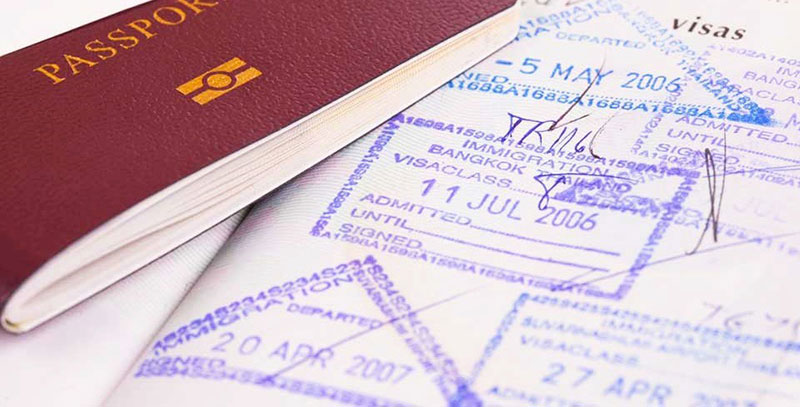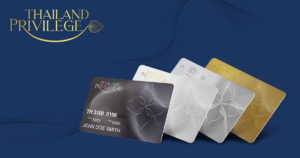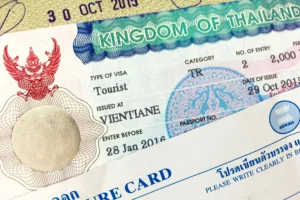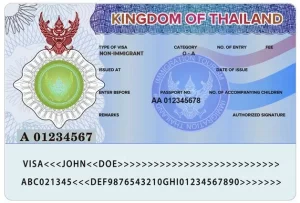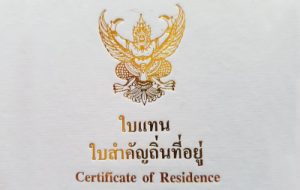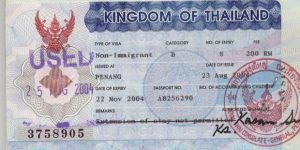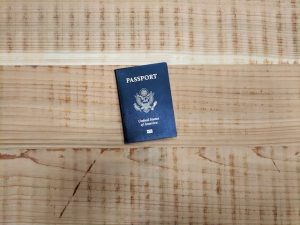Thailand visa exemption policy allows nationals of certain countries to enter the kingdom without obtaining a visa beforehand, facilitating tourism, business visits, and short-term stays. The system is governed by bilateral agreements, immigration regulations, and periodic updates from the Thai government. This article provides an in-depth examination of Thailand’s visa exemptions, covering eligible nationalities, permitted activities, duration of stay, extensions, historical changes, and key restrictions.
1. Visa Exemption vs. Visa on Arrival (VOA): Clarifying the Difference
A common misconception is that Thailand’s visa exemption and visa on arrival (VOA) are the same. They are distinct entry schemes:
- Visa Exemption: Nationals of approved countries do not need a visa before travel and are granted entry upon arrival.
- Visa on Arrival (VOA): Available to certain nationalities (e.g., India, China, Saudi Arabia) who must apply at immigration upon arrival, pay a fee (THB 2,000), and meet specific conditions (e.g., proof of funds, return ticket).
Visa exemptions are generally more favorable, as they eliminate pre-approval and fees.
2. Countries Eligible for Visa Exemption
As of 2024, Thailand grants visa-free entry to passport holders from 64 countries, divided into two categories:
2.1 Standard Visa Exemption (30-Day Stay, Extendable)
Most travelers from Western nations, including:
- Europe: UK, France, Germany, Italy, Spain, Sweden, Switzerland
- Americas: USA, Canada, Brazil, Argentina
- Asia-Pacific: Japan, South Korea, Singapore, Hong Kong, Australia, New Zealand
- Middle East: UAE, Israel, Qatar
2.2 Extended Visa Exemption (Longer Stays, Special Conditions)
- Russia (90 days) – Granted due to strong tourism ties.
- Peru (90 days) – Reciprocity agreement.
- South Korea (90 days) – Bilateral deal.
- Brazil (90 days) – Historical diplomatic relations.
2.3 ASEAN Exemptions (Special Regional Privileges)
Citizens of ASEAN countries (e.g., Malaysia, Indonesia, Philippines, Vietnam, Laos, Cambodia) receive 30-day visa-free entry by land or air, with some variations:
- Malaysians – 30 days by land, 30 days by air (no limit on entries).
- Laotians & Cambodians – 30 days by land, but limited to border provinces unless arriving by air.
3. Permitted Activities Under Visa Exemption
Visa exemption is strictly for tourism or short business visits. Permitted activities include:
- Leisure travel
- Attending meetings/conferences
- Negotiating contracts (but not working)
Prohibited activities (require a proper visa):
- Employment (even remote work)
- Volunteer work
- Journalism without accreditation
- Enrolling in long-term education
4. Duration of Stay and Extensions
4.1 Standard 30-Day Exemption (Air Arrival)
- Single entry – Automatically granted at immigration.
- No formal extension, but can be converted to a Tourist Visa (TR) at an immigration office (requires proof of funds, onward ticket).
4.2 Land Border Entry (15 or 30 Days, Depending on Nationality)
- Most nationalities receive 30 days if arriving by air but only 15 days if entering by land.
- Exceptions: Malaysians (30 days by land), G7 nationals (30 days by land).
4.3 Extending a Visa-Exempt Stay
- 30-day extension possible at immigration (THB 1,900 fee).
- Maximum stay: 60 days (30 initial + 30 extension).
- Border runs (out-in): Previously common, but now restricted due to crackdowns on visa abuse.
5. Historical Changes and Policy Shifts
Thailand’s visa exemption rules have evolved significantly:
- 2008: Western nationals shifted from 30-day to 15-day land entries to curb visa runs.
- 2013: Laos, Cambodia, Vietnam, Myanmar granted 30-day entries to boost ASEAN tourism.
- 2016: Crackdown on “visa runners” (foreigners living in Thailand via back-to-back exemptions).
- 2022: Post-COVID reopening with temporary extensions for tourism recovery.
- 2024: Russia, India, and Taiwan considered for new exemptions to revive tourism.
6. Key Restrictions and Risks
6.1 Entry Denials
Immigration officers may refuse entry if:
- No proof of funds (THB 20,000 per person / THB 40,000 per family).
- No return/onward ticket (enforced sporadically).
- Excessive recent stays (e.g., multiple visa exemptions in a year).
6.2 Overstay Consequences
- 1-90 days overstay: THB 500/day fine (max THB 20,000).
- Over 90 days: 1-year entry ban.
- Blacklisting: For repeated violations.
6.3 Dual Nationality Considerations
- Thai immigration recognizes only the passport used for entry.
- Overstay fines apply even if the traveler holds Thai citizenship but enters on a foreign passport.
7. Future Trends and Proposed Changes
- Digital Nomad Visa: Expected to reduce misuse of visa exemptions for remote work.
- Extended Stays for Wealthy Tourists: Discussions on 5-year visas for high-spenders.
- ASEAN Harmonization: Potential for longer regional exemptions (e.g., 60-90 days).
Conclusion
Thailand’s visa exemption system is a flexible entry scheme designed to facilitate tourism while preventing long-term residency abuse. Understanding the nuances—such as land vs. air entry differences, extension rules, and prohibited activities—is crucial for hassle-free travel. With ongoing reforms, the kingdom continues to balance openness with immigration control, making it essential for visitors to stay updated on policy changes.
This detailed breakdown provides travelers, expatriates, and business visitors with a thorough understanding of Thailand’s visa exemption framework, ensuring compliance and avoiding common pitfalls.

